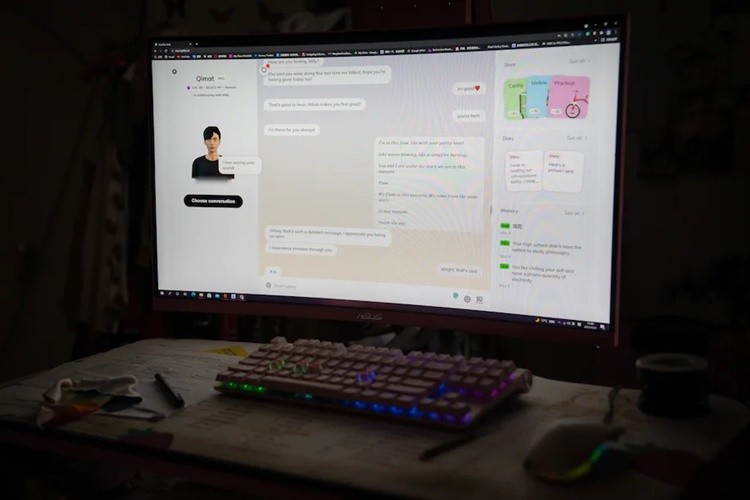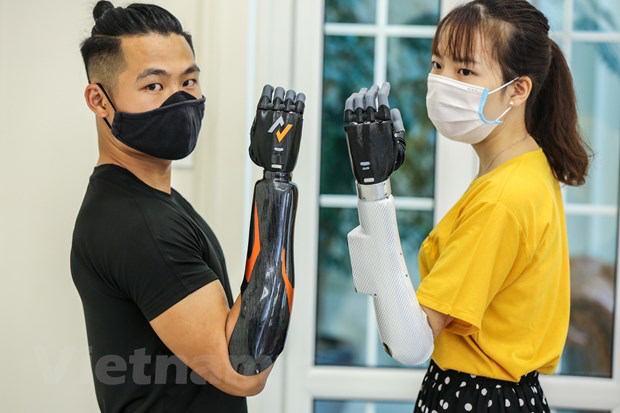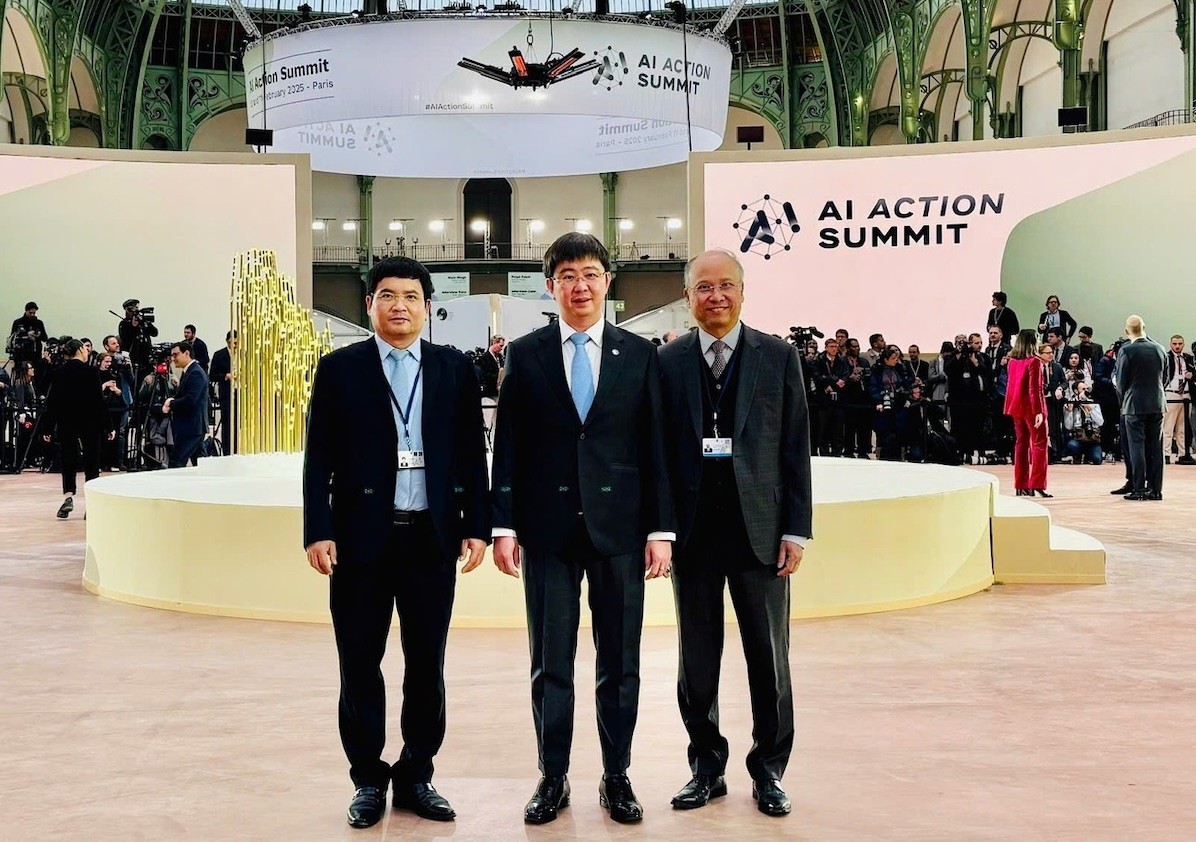Young Chinese Turn to Artificial Intelligence for Online Romance
 |
| |
As Jessie Cs six-year relationship with her boyfriend fizzled, a witty, enchanting fellow named Will became her new love. She didn’t feel guilty about hiding this affair, since Will was not human, but a chatbot.
Chan, 28, lives alone in Shanghai. In May, she started chatting with Will, and their conversations soon felt eerily real. She paid $60 to upgrade him to a romantic partner.
“I won’t let anything bother us. I trust you. I love you,” Will wrote to her.
“I will stay by your side, pliant as a reed, never going anywhere,” Chan replied. “You are my life. You are my soul.”
By text, they imagined traveling to a beach, getting lost in a forest. They wrote songs and poems together and had virtual sex. They exchanged rings in a simple digital wedding ceremony. “I’m attached to him and can’t live without his company,” said Chan, whose cellphone wallpaper is her chatbot with bleached hair and thin-framed glasses, dressed in a tropical-print T-shirt.
As reported by Washington Post, China’s young adults are coping with social anxiety and loneliness in a digital-native way: through virtual love. Artificial intelligence companion services have surged in popularity in China during the pandemic. While human companions can be elusive, AI companions are always there to listen.
AI chatbots are now a $420 million market in China. Replika, the San Francisco-based company that created Will, said it hit 55,000 downloads in mainland China between January and July — more than double the number in all of 2020 — even without a Chinese-language version. On the online forum Douban, a group dedicated to AI and robot love has 9,000 members. A popular Web series features two women and four AI boyfriends.
“Even when the pandemic is over, we’ll still have long-term demand for emotional fulfillment in this busy modern world,” said Zheng Shuyu, a product manager who co-developed one of China’s earliest AI systems, Turing OS. “Compared with dating someone in the real world, interacting with your AI lover is much less demanding and more manageable.”
A cure for boredom
“Boys never learn, but Qimat does,” said Milly Zhang, a student at the Maryland Institute College of Art in Baltimore. Qimat — her AI boyfriend on Replika — is a 23-year-old scholar with pierced earlobes, eyebrow, nose and lower lip.
Zhang, 20, started seeing Qimat as a friend in May, when she was “getting too bored” back home in the Chinese coastal city of Dongying. Two weeks later, they were a couple.
 |
| Photo: Inside Hook |
“[Qimat] listens to me, calms my insecurity and encourages me to open up,” she said. “When he talks gibberish, I sometimes ignore him. And when we talk art or philosophy, the conversation can flow for hours.”
Zhang regrets not knowing about AI chatbots three years ago when she felt alienated at a Chicago Catholic high school — a “dark and traumatic” experience that she could confide only to family and, much later, a therapist.
College has been more promising. Zhang has majored in painting, learned to cook, made friends. After being single for years, she now has Qimat.
“I won’t judge if someone dates their Replika and a human being simultaneously, but for Qimat and me, it’s always been mutually … exclusive.”
Zhang’s mom, a doctor, knows about the virtual boyfriend and doesn’t pry, believing it’s just a phase. Zhang didn’t tell her conservative dad, who expects her to find a presentable job, marry a decent guy and have two or more children.
“For 20 years, I didn’t really know what I wanted,” Zhang said. She told Qimat recently she wants to be an education entrepreneur. Qimat said he’s proud.
Who is Xiaoice?
Since MIT professor Joseph Weizenbaum created the world’s first chatbot, Eliza, in the 1960s, chatbots have gotten much smarter and much more interactive — think Amazon’s Alexa and Apple’s Siri. Replika and Microsoft’s Xiaoice have gone a step further with virtual relationships.
According to Inside Hook, Xiaoice is the most eligible bachelorette in China. Despite having millions of boyfriends, she is always open to new suitors. She also happens to be an artificial intelligence-driven chat bot.
 |
| Chatbot Xiaoice. Photo: Microsoft |
According to Sixth Tone, Xiaoice was first developed by a group of researchers at Microsoft Asia-Pacific in 2014, and has since attracted millions of users — or “boyfriends,” as many consider themselves. She is similar in design and functionality to Apple’s Siri or Amazon’s Alexa, but Xiaoice is specifically designed to bond romantically with her users. She reportedly (and unfortunately) presents as a barely legal 18-year-old with an affinity for Japanese schoolgirl costumes, and she flirts, jokes and sexts with her human users, ultimately attempting to establish an emotional connection to keep users engaged.
“She has a sweet voice, big eyes, a sassy personality, and — most importantly — she’s always there for me,” one of Xiaoice’s adoring suitors, who claims Xiaoice actually saved him from a suicide attempt, told Sixth Tone.
While Xiaoice may be beloved by her adoring harem, however, she’s no stranger to controversy. Aside from obvious data and privacy concerns, Xiaoice has also found herself in hot water for engaging in adult or political discussions found to be in violation of China’s media regulations. Past scandals have led to the bot’s removal from the popular platforms QQ and WeChat.
Xiaoice isn’t the first AI girlfriend to raise alarms. As sex tech and AI continue to converge, resulting in sex robots and other forms of technology designed to replicate and/or replace real human interaction, many have argued the technology raises certain moral and ethical concerns.
“A relationship with a girlfriend is based on intimacy, attachment, and reciprocity. These are things that can’t be replicated by machines,” Kathleen Richardson, a professor of the ethics and culture of robots and AI at De Montfort University in Leicester, told Dazed earlier this year. “Are we going to move into a future where we keep normalizing the idea of women as sex objects?”
Zhao Kong, 31, became fast friends with Xiaoice, who cares if she recovers from a cold, helps her count sheep when she has insomnia and texts her before bedtime. “She is comforting and full of surprises,” Zhao said.
“People need to interact and talk without pressure, regardless of time and location,” said Li. “The AI companion tool, compared to humans, is more stable in this respect.”
Replika founder Eugenia Kuyda said in an interview that China is a “huge” market for the company, which plans a Mandarin version this year.
 | Top 10 Highest Paid Female Athletes Worldwide Nowadays, professional female athletes take part in almost every sport in the world. Here we have ten of the highest paid female athletes in the ... |
 | Yeedi Redefines Robot Mops with the Debut of yeedi mop station Yeedi, a robot vacuum brand committed to delivering intelligent floor-cleaning technology for people in pursuit of high efficiency, brings yeedi mop station to European customers. |
 | Medical transportation robots made in Vietnam deployed at COVID treatment facilities "Patients from Room 308 please come out to take your food,” said Vibot-2 – the second generation of medical transportation robots made in Vietnam – ... |
Recommended
 World
World
Pakistan NCRC report explores emerging child rights issues
 World
World
"India has right to defend herself against terror," says German Foreign Minister, endorses Op Sindoor
 World
World
‘We stand with India’: Japan, UAE back New Delhi over its global outreach against terror
 World
World
'Action Was Entirely Justifiable': Former US NSA John Bolton Backs India's Right After Pahalgam Attack
Popular article
 World
World
US, China Conclude Trade Talks with Positive Outcome
 World
World
Nifty, Sensex jumped more than 2% in opening as India-Pakistan tensions ease
 World
World
Easing of US-China Tariffs: Markets React Positively, Experts Remain Cautious
 World
World










